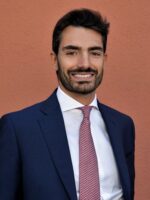
Antonio’s research critically explores how advanced technologies are transforming workplace dynamics and examines the potential of social institutions to foster a more sustainable future of work. In 2020, he received a Marie Skłodowska-Curie fellowship for his project on how algorithms influence decision-making at work.
As a professor at IE University Law School in Madrid, Antonio teaches European and Comparative Labour Law and guides students through the landscapes of digital regulation and data protection. He co-leads the Jean Monnet Centre for Law and Automation (Lawtomation) and is a member of the LawAhead Center on the Legal Profession.
Antonio earned his PhD in Business and Social Law from Bocconi University, Milan, where he teaches about digital platforms. He was a visiting professor at the Fundação Getulio Vargas (FGV) Law School, Sao Paulo, a postdoctoral fellow at the European University Institute (EUI), Florence, and a visiting researcher at Saint Louis University.
Antonio co-authored “Your Boss Is an Algorithm. Artificial Intelligence, Platform Work and Labour” (Hart Publishing 2022, with Valerio De Stefano), which explores the effects of artificial intelligence and machines used to govern modern work settings. He regularly publishes articles in major peer-reviewed journals.
Antonio serves as an academic expert for international organizations and research bodies, such as the European Commission, the European Parliament, the ILO, the OECD, the Eurofound and the Joint Research Center of the European Commission. His research findings are frequently cited in policy documents, cases and media reports.
Contact: aa13058@nyu.edu